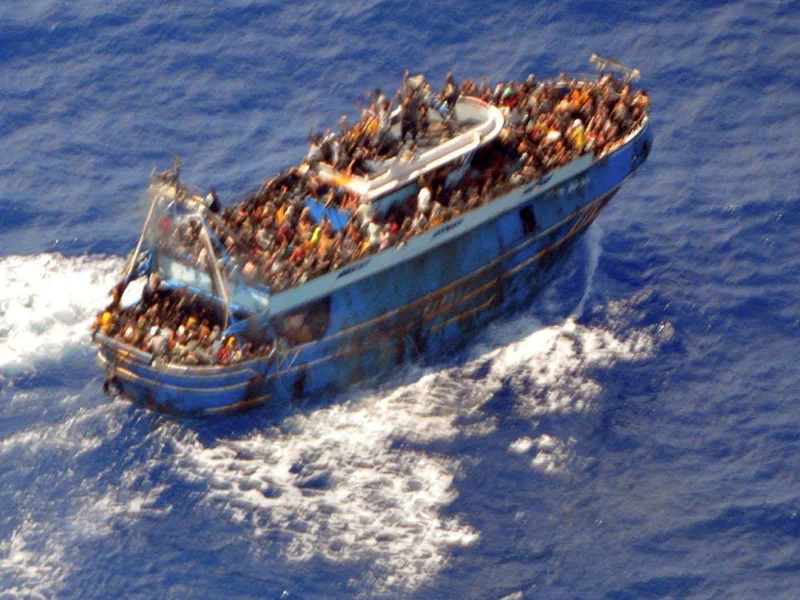by AYA BATRAWY

Thousands of men are vanishing from Egypt’s poor rural villages. Days later, they call their families to say they’re in neighboring Libya and need 140,000 Egyptian pounds ($4,500) to pay smugglers promising them passage to Europe.
It’s a scenario that’s been repeated over and over in past years, but last year there was a notable change: The number of Egyptians leaving their country this way began to climb dramatically just as the country’s economy began to plummet and inflation skyrocketed.
Mahmoud Ibrahim, 28, is one of the men who disappeared. It happened in June.
He had hardly ever left his town in the northern Egyptian province of Sharqiya, where the Nile River flows into the Mediterranean Sea. In fact, his family says he’d never even ventured as far as Cairo.
They were stunned when he called them from Libya two days after they’d last seen or heard from him. He owed Libyan smugglers that 140,000 Egyptian pound sum — an astronomical amount for families in these parts of Egypt — for a spot aboard a ship bound for Italy.
“Once he told us to pay, we sold some land we had, collected money from here and there and borrowed,” his older brother, Mohammed Ibrahim, said in an interview over the phone.
He said the family had no choice but to pay a masked man, part of an underground network of smugglers, because Mahmoud Ibrahim’s life was now in the hands of Libyan smugglers who control where migrants sleep, what they eat and which ships they get on — much of it at gunpoint.
A U.N. report notes: “Many migrants are abused or die on the way to their destination, and many are abandoned en route without resources.” For those who can’t pay, smugglers have been known to starve migrants, beat them and keep them hostage until the money is paid. In rare cases, they may leave people in the desert along the border with Egypt to find their way back home.
Like other young men in his town, Mahmoud Ibrahim never finished school. Having a high school diploma or even a college degree doesn’t guarantee steady work in these villages where decent-paying jobs are scarce. He had an apartment, a wife and a baby girl, but he couldn’t find stable work, relying on day wages from odd jobs here and there to pay for food and other basics.
‘They promised him life is beautiful’
Ibrahim says his brother knew almost nothing about life outside their village in Sharqiya, making it easy for traffickers to prey on him. Smugglers find leads and even lure children from Egypt on Facebook and chat groups. Their fees cover the expenses of getting the migrants from Egypt to Libya, feeding them and putting them on a boat to Europe.
“They promised him life is beautiful, easy. You’ll never touch the water,” said Mohammed Ibrahim – that is, your ship won’t sink. “Just two or three days and you’ll be in Italy and see a new world. It’s delusion.”
Mahmoud Ibrahim never got to see a new world. He was among hundreds of Egyptians, Pakistanis, Syrians and Palestinians presumed dead after their overcrowded ship, the Adriana, sank on June 14 near Greece after departing from the Libyan city of Tobruk about a week earlier. The botched rescue operation by the Greek coast guard has drawn scrutiny and raised questions about how the ship sank and why migrants aboard waited for hours in the open sea before any real attempt to save them was made.
Facebook pages are full of photos of missing Egyptians as families desperately seek word of their sons, husbands, cousins and neighbors – the migrants appear to be all males.
In one post, a man named Mohammed el-Sharkawi goes live with his phone camera as he searches for his brother and cousins who were on the Adriana. Through a fence and metal railings, he calls out to Egyptian survivors asking for the names of survivors from his hometown. They tell him what they know. Choking back tears, he reads back out loud the names of just six survivors. His brother and cousins remain missing.
Out of an estimated 750 people on the Adriana, only 104 survived.
NPR for more
(Thanks to reader)
